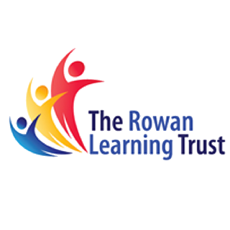RE
Mission Statement
To provide our children with an understanding of the different religions, beliefs and practices around the world so that they are tolerant and respectful about who we are as individuals.
Religious Education at Plantation
Religious Education is an important part of the Plantation Curriculum, developing an individual’s knowledge and understanding of the religions and beliefs which form part of contemporary society. Religious Education makes important links to our school curriculum and the Plantation Super Values: respect, kindness, determination and honesty. Each term, year groups 1-6 study a religious topic. In both KS1 and KS2, the pupils will study the following religions: Christianity, Buddhism, Judaism, Sikhism, Islam and Hinduism. Pupils in EYFS, study Religious Education through personal, social and emotional development and the understanding of the world.
Intent
- For our children to understand that religious education is the study of different religions around the world.
- To provide a stimulating curriculum that uses interactive and enjoyable lessons, stories, artefacts and visits to local places of worship to engage and enhance the teaching and learning of religious education.
- To deliver a curriculum that will provide our children with an understanding of the different religions around the world and their traditions, beliefs and practices.
- To provide a curriculum that teaches our children to be tolerant and respectful towards other religions and their views.
- To encourage our children to express ideas and give insights about different beliefs and meanings.
- To deliver a range of topics around different religions that will allow the children to build upon previous learning to progress their understanding as they move throughout the school.
- To deliver an inclusive curriculum so that children, including those with SEND, can make progress and can demonstrate success in a variety of different ways.
- For children to have opportunities to develop their learning further both inside and outside of lessons.
Implementation
- Religious education is taught as a standalone subject with each topic linking to a particular religion. Each year group (1-6), study 3 different topics over the course of the school year. Different religions will be covered and revisited as the children progress through the school.
- To ensure that there is a broad coverage of different religions, we are using the scheme PlanBee to support the teaching and learning of religious education. The scheme provides units of work which cover the learning of about six major world religions as well as multi-faith learning activities about the role of religion in local communities.
- The scheme provides a range of different activities that offers practical and visual resources to engage our children and promote curiosity about world religions .
- Religious education is delivered on an alternative week basis. Over the course of the year, three units of work will be taught to each year group.
- Throughout the topic, children are formatively assessed using the work in their book, the oral input of the child in lessons, teacher observations of children discussing their work individually, in pairs and in groups and evidence from the end of unit knowledge quiz.
- At the end of each unit, the teacher uses the end points to give their professional judgement of each pupil - what they now know, understand and can show. This allows the teachers and subject lead to develop future planning.
- Religious Education has cross curriculum links to English (reading, writing, speaking and listening) through the themes explored within books. It also makes important contributions to other parts of the school curriculum such as citizenship, personal, social, health and economic education (PSHE education) and others. It offers opportunities for personal reflection and spiritual development, deepening the understanding of the significance of religion in the lives of others – individually, communally and cross-culturally.
Impact
- Feedback from the staff across the school has been positive. They find the scheme of work easily to follow and adaptable when necessary. They feel that the sequence of work has a continuous flow and by revisiting topics, it shows progression in the children’s knowledge of religions.
- Teachers have found that children are able to recall key information about religions covered in KS1 when they are revisited again in KS2.
- Children are engaged in RE lessons and show enthusiasm towards different religions. They look forward to lessons and sharing what they have learnt.
- End of unit assessments will be completed using the core and additional end points. Findings from the data will be used to identify areas for development.
- Subject moderation using pupil voice, book looks and learning walks will provide evidence of the impact of our curriculum and feed into the development plan.
Long Term Plan
Please click here to view our school's long term plan for RE.

